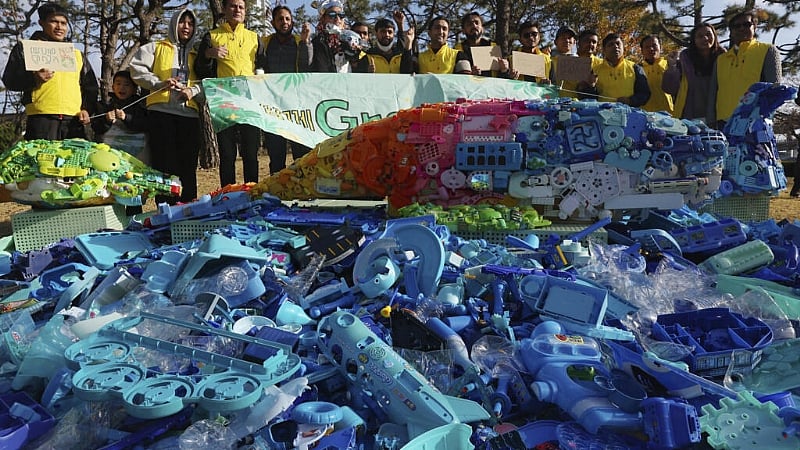Paragraph 1: The global community faces a critical juncture in addressing the escalating plastic pollution crisis. Delegates from nearly 180 countries are convening in Geneva for a crucial round of negotiations under the auspices of the United Nations. The objective is to forge the first legally binding international treaty to combat plastic pollution, a challenge previously unmet due to persistent disagreements. This renewed effort comes as scientific evidence mounts regarding the pervasive and detrimental effects of plastic waste on the environment and human health. Microplastics, minute fragments of plastic debris, have infiltrated the highest mountains, the deepest ocean trenches, and even the human bloodstream, highlighting the urgency of the situation.
Paragraph 2: The gravity of the plastic pollution problem is underscored by a recent report published in The Lancet, a prominent medical journal. The report characterizes plastic pollution as a “grave, growing, and under-recognised danger” to human health, estimating the associated global costs to exceed $1.5 trillion annually. The study draws parallels between the harm caused by plastic and that of air pollution and lead, advocating for immediate legislative action to mitigate its impact. Dr. Philip Landrigan, a researcher at Boston College, emphasizes the disproportionate burden borne by vulnerable populations, particularly children, urging delegates in Geneva to seize the opportunity to establish a framework for effective international cooperation to address this global crisis.
Paragraph 3: The path to a global plastic treaty has been fraught with challenges. Previous negotiations in Busan, South Korea, ended in a stalemate, primarily due to a fundamental divide between nations advocating for mandatory limits on plastic production and those, often oil-producing countries, favoring solutions focused on improved waste management. Environmental advocacy groups are pressuring negotiators to prioritize meaningful action over industry interests, expressing concern over the influence of lobbyists at the talks. Representatives from the Alliance of Small Island States (AOSIS) reinforce the necessity of a comprehensive treaty that addresses the entire lifecycle of plastics, from production to disposal, emphasizing the vulnerability of small island nations to the impacts of plastic pollution.
Paragraph 4: The urgency of the situation is compounded by projections from the Organisation for Economic Co-operation and Development (OECD), which predict a tripling of global plastic consumption by 2060 if current trends continue. The current annual production of 460 million tonnes of plastic, half of which is single-use, with a recycling rate of less than 10%, underscores the scale of the challenge. The United Nations Environment Programme (UNEP), overseeing the negotiations, warns that plastic waste in soils and waterways could increase by 50% by 2040 without intervention. Despite these alarming figures, there remains a cautious optimism that a treaty can be achieved in Geneva. UNEP Executive Director Inger Andersen acknowledges the complexities of the negotiations but believes a workable agreement is within reach.
Paragraph 5: However, the ultimate form and effectiveness of any treaty remain uncertain. Concerns exist that political pressures may lead to a weak agreement lacking the necessary provisions to address the root causes of plastic pollution. Critics warn against a “skeleton treaty,” lacking the financial resources and political will to be truly effective. Negotiators face the challenge of bridging the gap between differing national interests, particularly the divide between those advocating for production caps and those favoring a focus on waste management. The influence of industry lobbying also presents a potential obstacle to achieving a strong and meaningful agreement.
Paragraph 6: The negotiations unfold against a backdrop of shifting global political dynamics, including scepticism towards multilateral agreements from some major powers. Despite these challenges, a growing coalition of nations is pushing for ambitious action. At the UN Oceans Conference in Nice, 95 countries, including European Union members, Mexico, and Senegal, called for a treaty with specific targets for reducing plastic production. The success of the Geneva talks hinges on the ability of negotiators to overcome these obstacles and forge a treaty that addresses the full lifecycle of plastics, from production to disposal. The outcome will have significant consequences for the planet and future generations, determining whether the world can effectively address the mounting plastic pollution crisis.














